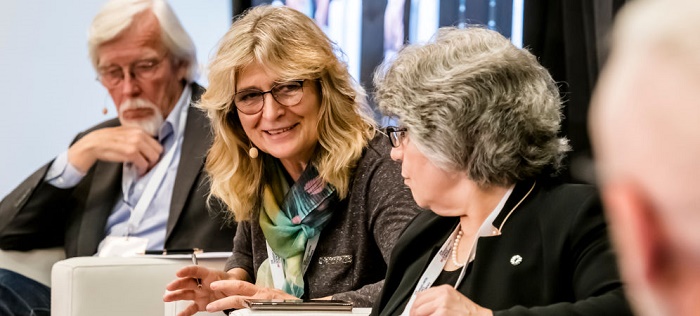The African Academy of Sciences (AAS) on Thursday, December 12, 2024, called on scientists across the continent to defend African science, deploy and domesticate realistic models to address problems within the region.

Some members of the academy made the call in an interview on the sidelines of its on-going 15th Biannual Scientific Conference and General Assembly, in Abuja.
The conference has “Empowering and Advancing African Scientific Enterprise” as its theme.
President of the AAS, Prof Lise Korsten, said African science was at a critical point in the history of the continent’s development and needed commitment to thrive.
Korsten stated that scientists had the role of shaping its future, adopting innovation and technological development to address the unique African problems.
“We must play in the future, which is not only enhance innovation but also technological development to address the critical challenges we face.
“These challenges are quite clear around health, environment, food security, climate change and we must play a more prominent role in policy dialogues and also science communication.
“This is important to reach out to communities but also to engage with governments and help direct future policies and strategies.
“We must make a difference as scientists, we can no longer sit in our laboratories, in our safe zones, we must make an impact, we must have a voice and we need to stand up for science,’’ she said.
Korsten further said that borders were created as an aftermath of colonialism, hence science growth was being affected.
“Colonisation had so many negative effects on the continent, it caused to a great extent stagnation in terms of natural evolution of development of people.
“If we want to integrate science, if we want a united voice and address global challenges, very importantly addressing challenges we have unique to Africa, we must ensure mobility, we must rethink the strategy around visa requirements,’’ she said.
On the continent achieving the Sustainable Development Goals (SDG) of 2030, the president said that Africa was lagging, but the delays were not peculiar to the continent.
She blamed COVID-19 as a major contributor to the delayed achievement of SDGs, as Africa may not also had shown serious commitment from the beginning.
“I think we may not have been committed enough from the beginning, but we are working towards the African future that we want, the 2063 Agenda.
“We need to have a future vision, we need to be quite clear on the goals that we never got close to achieving and prioritise,’’ Korsten said.
Prof Oyewale Tomori, a renowned Virologist and panelist at the conference, said African scientists needed to prove the relevance of their research to solving continental problems.
Tomori acknowledged that science could achieve so much, but awareness was low.
“The science we are deploying has no relevance to our people and that is why we need to know our people, so to tailor our science to meet the needs in the society.
“Our science has been esoteric and even when we do good things, we don’t even know how to explain it to the people.
“We also don’t talk to our people, and so we don’t know their problem, when we interact with our people, we can find out their problems and use our science to solve the problem,” Tomori said.
He further said it was the responsibility of scientists to educate the public and government on the benefits in science for the benefit of all.
Prof Martins Emeje, Director-General, Nigerian Natural Medicines Development Agency (NNMDA), said that science was described as a systematic body of knowledge and anything done systematically to achieve result was science.
“We know that there should be a global standard for science, but nobody should make it look like what our people do in the villages systematically to get answers is not science.
“The fact that they do not use enema, UV and those analytical equipment does not mean they are not doing science,”Emeje said.
The D-G stated that it was time for Africans to do self-evaluation on its level of science, research and application so to solve our unique problems.
The 15th Biannual Scientific Conference and General Assembly of the AAS is the first to be hosted in Nigeria since its inception in 1985.
By Ijeoma Olorunfemi
